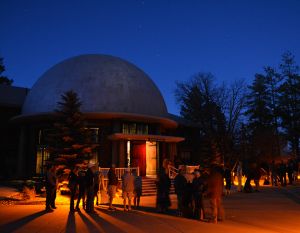Historical Charm: Exploring Flagstaff's Heritage Sites
Flagstaff, Arizona is a city situated amidst the beautiful San Francisco Peaks. The city has a rich history that dates back to the mid-19th century. One of the key moments in Flagstaff's history occurred in 1855 when Navy Lieutenant Beale was tasked with building a road across northern Arizona. When he arrived in the area that would later become Flagstaff, Beale was impressed
by its abundant resources, including lush grasslands, plentiful water, and towering timber. He immediately sent a report to Congress, which set in motion a series of events that would shape the destiny of this frontier town.
News of the region's allure spread swiftly, particularly among migrants from Boston en route to California via Beale's road. On July 4, 1876, these pioneers, captivated by the surrounding natural beauty, stripped a pine tree and hoisted an American flag. This makeshift "flag staff" became a landmark for other travelers, marking the birth of the city's namesake and laying the foundation for its history. The subsequent arrival of the Atlantic and Pacific Railroad in 1880 marked the end of Flagstaff's isolation, paving the way for a vibrant community to flourish. The town quickly transformed from a humble settlement to a bustling railroad town with a population of 200 by the fall of 1881. Saloons, entertainment venues, and businesses catering to the railroad crews sprang up, turning Flagstaff into a vital service stop. By winter 1882, the town had evolved into a well-established hub, catering to the diverse needs of sheepherders, cowboys, loggers, and
train travelers.
To truly appreciate Flagstaff's historical charm, one must explore its heritage sites, which stand as a testament to its rich past.
Riordan Mansion State Historic Park
Riordan Mansion, built in 1904 for the prominent Riordan family, who were loggers, is a testament to Flagstaff's prosperous past. The mansion's architecture and preserved rooms offer a glimpse into the Riordan family's lifestyle, inviting visitors to step back in time.
Pioneer Museum
At the Pioneer Museum, exhibits and artifacts weave a compelling narrative of Flagstaff's pioneers. The museum showcases the clothing, tools, and stories of those who shaped the town's early days, offering a tangible connection to the past.
 Lowell Observatory
Lowell Observatory
Lowell Observatory is a true paradise for astronomy enthusiasts. Founded in 1894, this observatory has played a pivotal role in astronomical history, with notable discoveries such as the detection of the first evidence of the expanding universe in 1912, the discovery of Pluto in 1930, and prominent astronomers associated with its legacy. Visitors can participate in stargazing events or educational programs, which help bridge the gap between Flagstaff's terrestrial and celestial history.
Heritage Square
Heritage Square is a cultural center that showcases historical structures, which serve as the perfect backdrop for events and festivals. Each building has its unique significance, contributing to the tapestry of Flagstaff's past, and inviting visitors to immerse themselves in the city's
cultural heritage.
 The Weatherford Hotel
The Weatherford Hotel
The Weatherford Hotel is a historic landmark in Flagstaff, known for its timeless elegance. It has played an important role in the city's history, hosting famous guests such as Theodore Roosevelt and William Randolph Hearst. Today, it remains a significant part of the city's landscape, perfectly blending the past with the present. Check out the Weatherford's blog for some very interesting history of Flagstaff and this fascinating (and apparently haunted) heritage site.
Flagstaff's heritage sites offer a unique opportunity to take a journey through time, allowing visitors to relive the city's storied past. From the opulent halls of Riordan Mansion to the celestial wonders observed at Lowell Observatory, each site adds a distinct piece to the tapestry of Flagstaff's history. We highly encourage readers to explore these hidden gems and discover more of Flagstaff's rich heritage.

